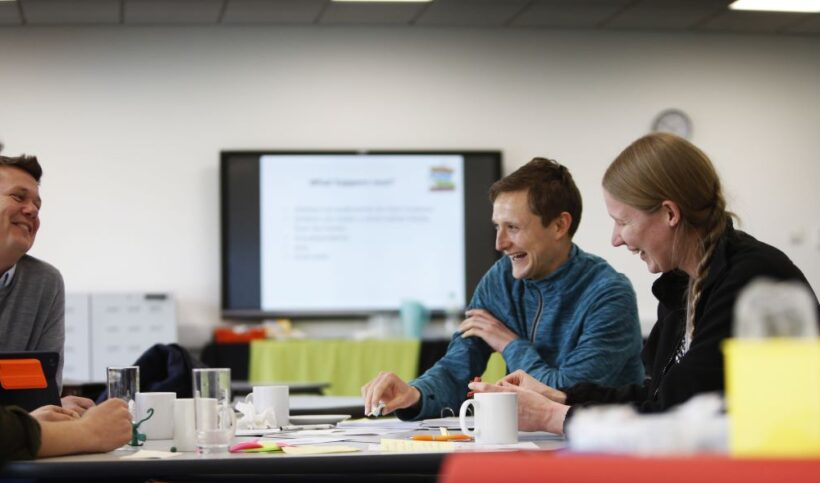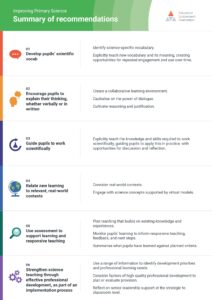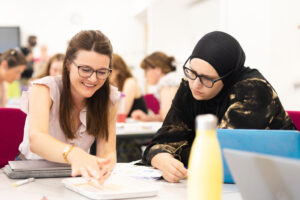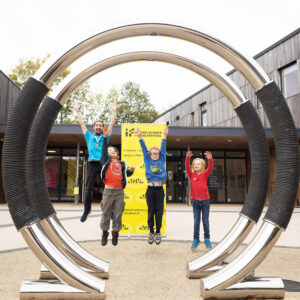Thinking, Doing, Talking Science informs guidance to improve primary science teaching
Monday 4th December 2023

The Education Endowment Foundation (EEF) has published a new guidance report, “Improving Primary Science”, with six key recommendations to improve high-quality primary science teaching.
The guide aims to support teachers, science subject leads, and senior leaders to reflect on their current practice so that they are able to recognise which approaches may better support learning and implement them effectively in their setting.
We are pleased that evidence from 10 years of Thinking, Doing, Talking Science (TDTScience) has been valuable in informing these recommendations. The TDTScience approach to science teaching makes science lessons practical, creative and challenging, with dedicated opportunities for discussion, and more opportunities for higher-order thinking.
Nurturing curiosity and critical thinking
We know from our work at Science Oxford that young children experience joy and wonder and have a natural curiosity about their world. But this can erode over time if it isn’t nurtured, so that by the time pupils start secondary school, many can become less engaged with science. Primary science teaching plays a crucial role in building children’s curiosity and critical thinking, shaping how they feel about science and fostering inclusive participation to support future engagement and pathways into STEM fields.
Early science teaching to empower all pupils
Socio-economically disadvantaged pupils face greater challenges and show lower attainment in STEM subjects when they often have great potential in these areas of study. It is crucial that early science teaching empowers all pupils, regardless of their background, to engage fully with science learning, equipping them with the knowledge and skills they need to access opportunities later in life.
The results of the first randomised controlled efficacy trial investigating the impact of the TDTScience training programme for primary teachers were published by the EEF in 2015, with a subsequent paper in the International Journal of Science Education in 2020. The study showed that TDTScience had a statistically significant positive effect on pupils’ attainment and attitudes in science. The impact was stronger among girls and among those pupils with lower prior attainment. Pupils who were taught by teachers trained in TDTScience reported a significant increase in positive attitudes to science, science lessons and practical work. Teacher feedback also revealed that all participating teachers had made changes to their classroom practice as a consequence of their TDTScience training and enjoyed teaching science more.
National effectiveness trial
The evidence from the efficacy trial for TDTScience led to it becoming one of the EEF’s ‘promising projects’ and work began in 2016, via a national effectiveness trial, to see if the positive impact could be maintained at scale via a train-the-trainer programme. A first trial revealed partial success and this led to a second national effectiveness re-trial of TDTScience from 2021-24, with a strengthened model for training experienced specialists to deliver TDTScience courses . We will be excited to share the results of this trial when the first outcomes are reported by the EEF in summer 2024.
Six practical recommendations
This evidence of impact from TDTScience has been valuable for informing recommendations in the EEF’s primary science guidance report. The report’s six practical recommendations (see graphic below) about how to make meaningful improvements to primary science teaching are designed to help teachers build on their existing expertise to help them close the attainment gap and cultivate positive pupil attitudes towards science.

Download the full report here
More about TDTScience
TDTScience is a registered trademark of The Oxford Trust and the training programme was developed by Trust employees in partnership with Oxford Brookes University. The TDTScience approach is at the core of Science Oxford’s education programme which aims to provide opportunities for higher order thinking in science by making it more practical, creative and challenging for pupils with dedicated opportunities for discussion. The TDTScience approach has also been used to develop the hands-on exhibits for the Science Oxford Centre.
Find out more about Thinking, Doing, Talking Science here



